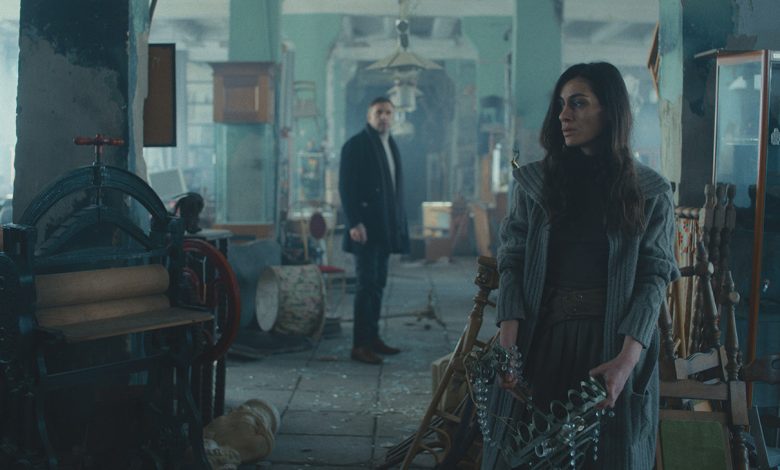The Antique Filmmaker on Challenge of Filming Amid Russian Opposition

Making an indie film anywhere is hard. Making it in Russia while criticizing Vladimir Putin? That’s Siberia tough.
So went the challenge faced by Georgian writer-director Rusudan Glurjidze, whose film The Antique has run into monumental release hurdles thanks, it would appear, to the efforts of powerful Russian interests.
Set against Russia’s deportation of Georgians in 2006, Glurjidze’s movie tells of a young native Georgian woman in St. Petersburg who comes to live with a curmudgeonly Russian man as she seeks to avoid being shipped from the country — a subtle drama whose snowy mise-en-scène suggests a chilly chapter of modern Russian history.
The film is Georgia’s official entry for the international Oscar. Just getting it to that point has been a kind of triumph. Glurjidze recently visited Los Angeles to talk about her odyssey. THR met her for lunch to hear her story.
How aware were you in development of what you were up against?
The first problem started when Russian authorities read the script. It was an immediate reaction.
They needed to read it because you were shooting there.
Yes, and we had to shoot there. So this was a Russian minority co-production. And they saw this scene in the script and asked us to remove it. My answer was no. But I knew things would get strange.
Like what things?
The Russian partner didn’t fulfill their [financial] obligations; instead they were always trying to put us in chaos. [The Russian co-producer Glurjidze said she preferred not to name for legal reasons] called and said she didn’t have the money. So we had this huge gap in funding. We still started shooting. But then, every day there seemed to be a new location problem, and I knew that was coming from the government. One day we even had our costumes cut.
As in literally touched by scissors?
Yes. It’s always difficult to shoot in Russia, but this was especially difficult. At some point they started to speak to us only through lawyers. It was clear they were trying to stop this movie.
And yet, somehow, you finished it.
We did, but then we had to get it into postproduction outside of Russia. This was February 2022.
Right before the invasion of Ukraine.
Two days before.
How did you get the movie out?
We couldn’t risk sending it electronically. We had to do it physically. But the problem is, they were going to inspect our luggage.
So what did you do?
Let’s just say we got creative.
Do I want to know?
Probably not.
The important thing is you got it out. Except that was the beginning of a whole new set of challenges.
We were accepted to three European film festivals. We chose Venice because it’s so prestigious. It was all set. Then we get there and we learn there’s been a case filed in an Italian court.
What kind of case?
Copyright infringement.
Copyright infringement? It was your script!
I had a secret Russian co-writer I’d rather not name.
And this person was alleging infringement.
No, they were totally fine. But they live in Russia and couldn’t protest what the co-producer was doing.
So the co-producer is pretending the screenwriter’s work was infringed upon. What did the Italian court say?
They said they were going to review it. But Venice was starting and they couldn’t show it during the review. So they canceled the world premiere and the press screening. Finally, after seven days, the court said we had a right to show it. The festival was almost over. Everyone had gone home. We had one screening at 11 a.m. It didn’t feel like a world premiere. It just felt unjust.
And the irony is you were making a movie about Russian-led injustice.
I made a movie about being a refugee because of Russia and now my film had become a refugee. The film felt like a ghost. It still feels like a ghost.
And distributors are scared?
Yes, there’s another lawsuit and they’re waiting to see what happens. But we’re able to distribute in Georgia. And in a way, that’s what’s most important.
Source: Hollywoodreporter
Related Posts
- Roundball Rocked: With NBA Return Looming, NBC Purges Scripted Roster
- SoundCloud Says It “Has Never Used Artist Content to Train AI Models” After Backlash on Terms of Service Change
- Fox News’ Camryn Kinsey Is “Doing Well” After Fainting on Live TV
- Kerry Washington and Jahleel Kamera in 'Shadow Force.'
Courtesy of Lionsgate
…
- This Alternative Artist Landed a Top-20 Chart Debut With an Album Made Almost Entirely on His Phone





